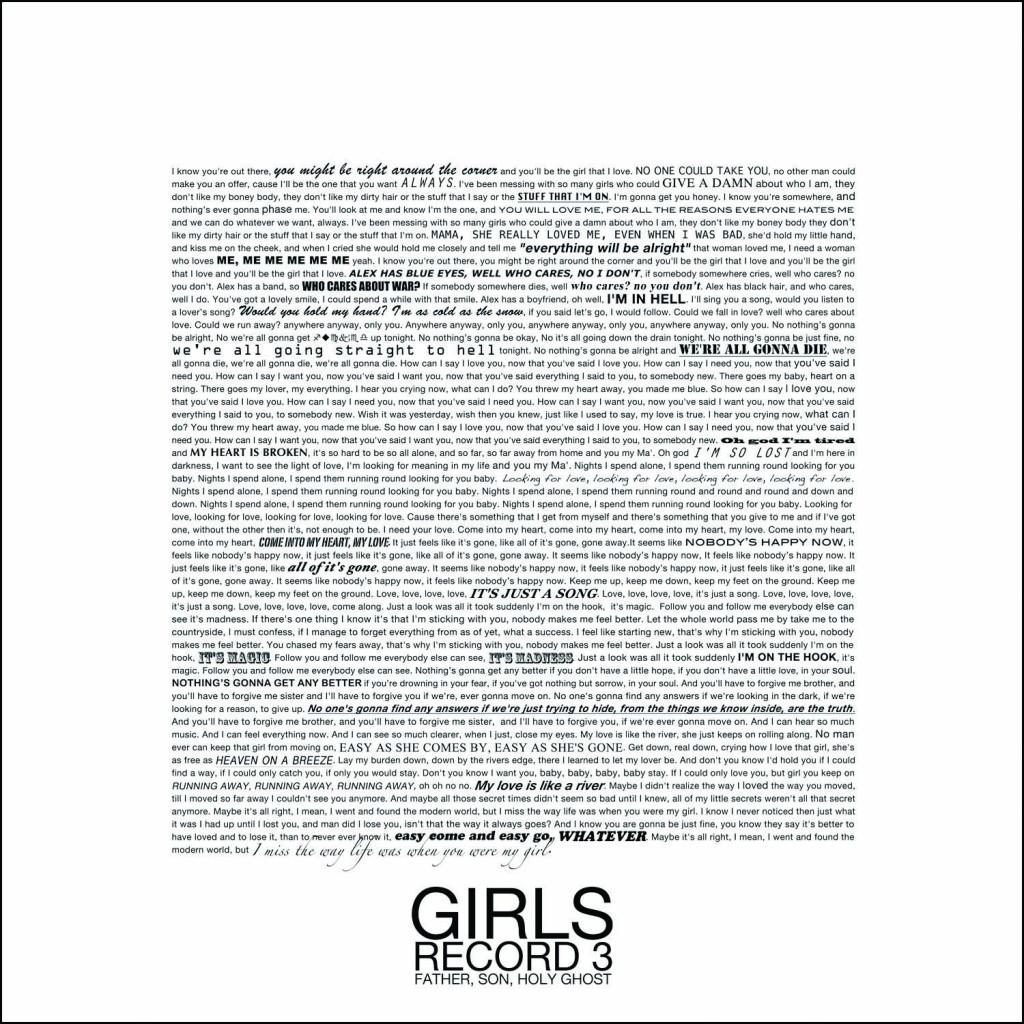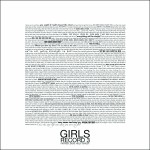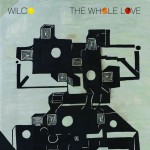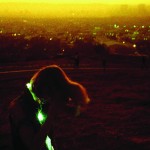Monthly Music Review: September Release Party
September 21, 2011
Girls
“Father, Son, Holy Ghost” released Sept. 13
![]()
With the early release of the single, “Vomit,” there was no question that San Francisco group Girls’ second studio album, “Father, Son, Holy Ghost,” would be one of the most anticipated albums of the year. Already coming off a highly acclaimed debut album that introduced listeners to the sunny, Bay Area coastal pop sound that would characterize the San Francisco scene, Girls is highly underestimated as one of the greatest modern examples of how to write the perfect pop song.
Singer Christopher Owens’ voice is achingly fragile; perfect for songs that center on heartbreak, relationships, and everything else idol Buddy Holly shakily yelped over. “Father, Son, Holy Ghost” takes a step in a bigger direction than in their debut aptly titled, “Album.” The songs are longer, more elaborate and carefully thought out. One nice element of “Father, Son, Holy Ghost” is the addition of R&B back-up singers that gives the songs a well-rounded and supportive role in songs like “Love Life” and the Pink Floyd-style magnum opus, “Vomit.”
There are some songs that should have had a little more added to them, whether it be instrumentation or melody. Yet, this is all made up for with “Die,” a Black Sabbath-esque jam that jumps out and beats the living hell out of you. The tone of the song is completely unexpected, especially after nearly 45 minutes of heartbreak-based pop songs. “Father, Son, Holy Ghost” is a solid piece of work through and through that stays true to who they are as a band regardless of how people may feel about them. Amen to that.
Wilco
“The Whole Love” release date Sept. 27
![]()
After the recent release of the less than satisfying “Wilco (TheAlbum),” Chicago’s favorite sons are back with their eighth studio album, “The Whole Love.” It is a warm, almost explorational composition of musical talent that recalls some of the best parts of their breakthrough album, “Yankee Hotel Foxtrot,” complete with experimental but subdued sounds. “The Whole Love” allows the band to broaden their musical prowess even further without diverting from their country-tinged roots.
“The Whole Love” is a shining example of Wilco’s talent at creating whole, encompassing albums—songs that remain enticing even after multiple listens; songs that complement one another in musicality and emotion from top to bottom. Wilco was never a band to single out one song on an album and expect it to get big or be a favorite. Wilco, in a way, are maternal when it comes to their material; each song is like a son or daughter, one never favored over the other in their family on their albums, especially “The Whole Love.” Each song gets the same meticulous, loving attention that it deserves.
The band sounds incredibly comfortable on “The Whole Love.” Instrumentally, the group hasn’t changed a whole lot in recent years; the same beautiful pop songs still get churned out like it’s nobody’s business while also including the occasional raucous rocker where the old days of their youth come out. The elusive flourishes by guitarist Nels Cline are few on this album, which is not a bad thing by any means. Cline, like any veteran guitarist in music, knows when to turn it down and spice it up at a snap of singer Jeff Tweedy’s finger. Tweedy’s lyricism on “The Whole Love” is heartfelt and touching, sincere and apologetic—in other words, pure Tweedy. “Dawned on Me” is the song Wilco was made to write, a tale of epiphany-like love that makes you want to grow a pair and tell that secret crush exactly how you feel. “Whole Love” recalls the sweetness of The Byrds with a dizzying little riff that is not the centerpiece of the song, but proves to be a good candidate for it.
There isn’t anything bad to say about “The Whole Love.” Wilco have been around for so long, that for them, writing songs as good as these are like breathing—you don’t wonder why, you just do.
Neon Indian
“Era Extrana” released Sept. 13
![]()
Channel the sounds of your favorite Sega cartridge through a vintage Moog synthesizer and you get one of the many sounds of Neon Indian. Hailing from Denton, Texas, Neon Indian is comprised of Allan Palomino, a pioneer in the genre known to many as “chillwave.” While his breakthrough album “Psychic Chasms” made everybody want to dig out their old L.A. Lights, the surrounding sounds of Palomino’s synth work made the album a hit within the indie community with everybody wondering what the talented 20-something would come out with next.
“Era Extrana” looks to capitalize where “Psychic Chasms” left off. You can tell that Palomino had wanted to do much more with “Psychic Chasms” which is played out in full with “Era Extrana.” While “Chasms’” sound was more like paint being splashed all over a wall, “Extrana” is a bit clouded and overcast. Songs such as “Fallout” and “Era Extrana” brood over and over, but go off course once and a while, which is interesting to hear. Influences such as Genesis and Joy Division shine through on more emotionally charged songs like “Halogen (I Could Be a Shadow)” and “Blindside Kiss” respectively.
“Extrana” is a fun album to listen to. The element that it has going for it is nostalgia. The sounds take you back to times when channels like PBS and WLIW21 aired cheap educational programs intended for kids. Who knew “Reading Rainbow” could be so melodic.















